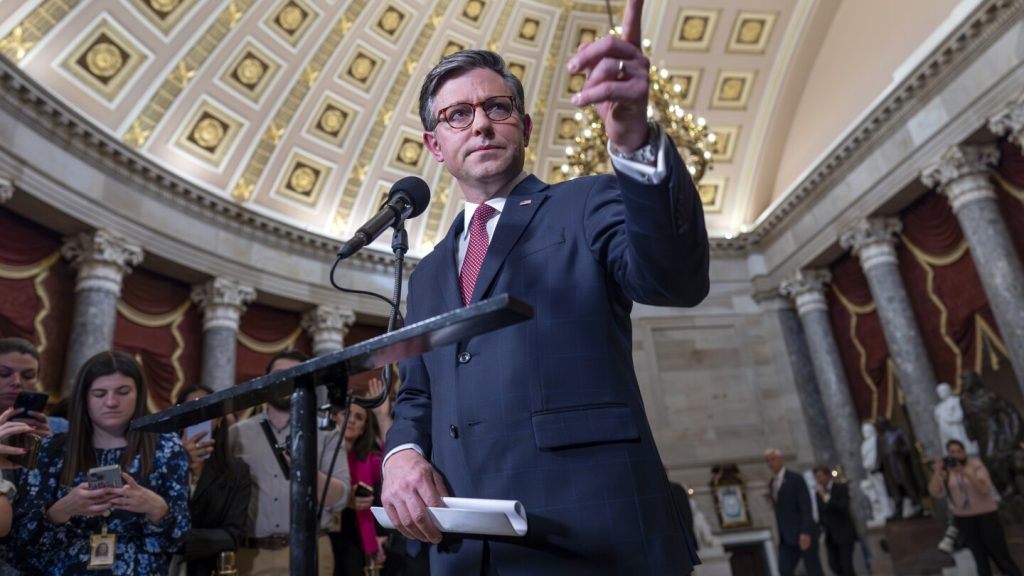Democrats in the House are considering helping Republican House Speaker Mike Johnson if Rep. Marjorie Taylor Greene tries to force a vote to oust him. The decision to assist Johnson would likely be based on his delivery of an emergency aid package for Ukraine and Israel. Democratic leaders like Hakeem Jeffries are suggesting a wait-and-see approach to maximize leverage in the situation, without committing to any public statements. Rep. Raja Krishnamoorthi believes that if Johnson successfully passes the aid package, he should not be punished for doing the right thing.
While some Republicans are distancing themselves from Greene’s efforts to remove Johnson, there is concern about potential division within the party. Johnson may not need a large number of Democratic lawmakers to remain in his position as speaker, but support from them could be crucial depending on the number of Republicans who vote to remove him. Rep. Scott Peters has indicated that he would support Johnson if the Senate-passed aid package is put up for approval, emphasizing the importance of bipartisan cooperation on such critical issues.
Johnson’s decision to break up the aid package into multiple bills allows lawmakers to vote on different components separately, offering them greater flexibility in their decision-making. Johnson has not sought direct involvement from Democrats in the motion to vacate him, focusing on his responsibilities as speaker instead. Some Democratic representatives have expressed willingness to consider supporting Johnson in a speaker vote if he allows for a vote on the Ukraine aid package, highlighting their commitment to prioritizing important issues over partisan politics.
Some Democrats believe that helping Johnson should be part of a broader package deal that includes crucial issues like Israel, Taiwan, Ukraine, and border security. The expectation is that Johnson should have coordinated with Democratic leaders like Jeffries before seeking their support. There is a willingness among some Democratic representatives to work with Johnson under specific conditions, ensuring that their actions align with their principles and priorities. The negotiation process is seen as an opportunity for Democrats to engage in meaningful discussions and seek compromises that benefit both parties.
However, not all Democrats are in favor of helping Johnson stay in his role as speaker. Some express deep reservations about his leadership and decision-making, citing concerns about his delay in addressing the situation in Ukraine. Representative Lloyd Doggett of Texas, for example, is skeptical about assisting Johnson and questions the longevity of his tenure if he has to rely on Democratic votes to continue leading the House. Ultimately, the decision to support or oppose Johnson in a potential speaker vote will depend on individual beliefs and priorities among Democratic representatives.
Despite the varied opinions within the Democratic Party, the overall sentiment seems to be a willingness to engage in discussions and negotiations with Johnson based on the critical issues at hand. While some are open to the idea of supporting him under certain conditions, others remain steadfast in their opposition, citing concerns about his past actions and positions. The decision on whether to help Johnson stay on as speaker will likely involve careful consideration of the broader implications and consequences for both parties involved.


